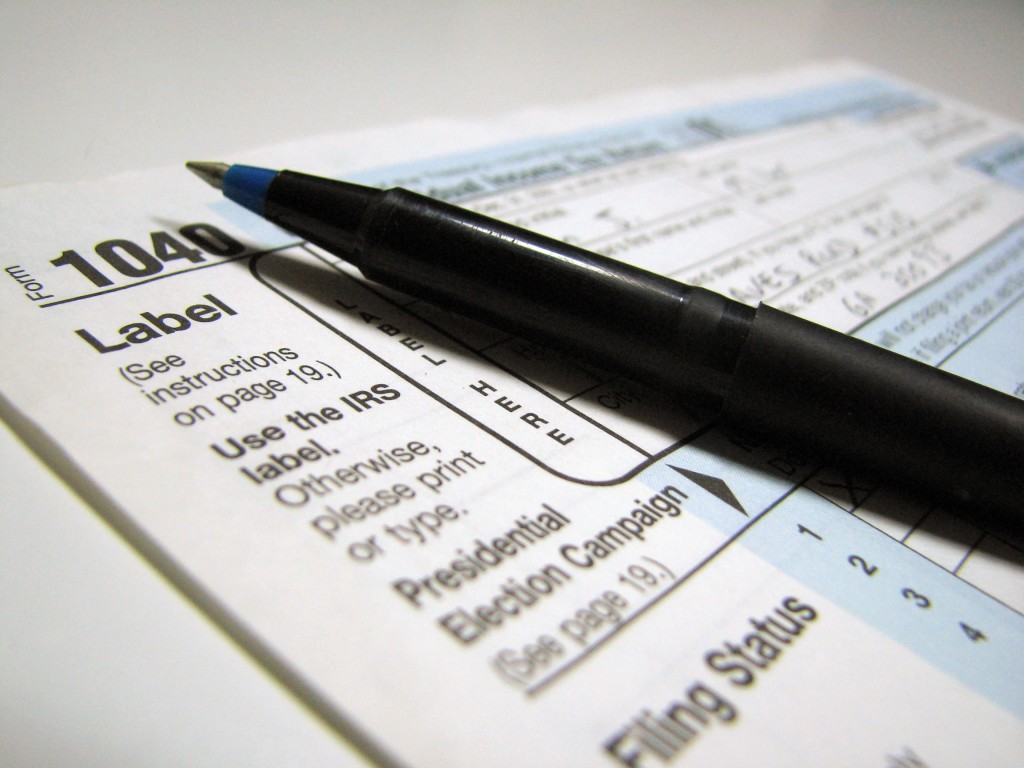How Divorce Affects Your Taxes
 As tax season is upon us, I have received many questions on how divorce can affect your tax filing and the amount of taxes you owe or the refund you may receive. The easiest way to explain this is to breakdown the different parts of a divorce and explain what, if any, tax implications could be involved.
As tax season is upon us, I have received many questions on how divorce can affect your tax filing and the amount of taxes you owe or the refund you may receive. The easiest way to explain this is to breakdown the different parts of a divorce and explain what, if any, tax implications could be involved.
Alimony: Alimony is considered income by the person receiving the payments and they must claim the alimony as income on their tax return. The person paying the alimony is allowed to deduct alimony payments on their taxes.
Child Support: Child support is never deductible nor is it ever considered income. This makes sense if we think about the policy behind child support. The child, rather than the receiving parent, has the right to the child support. That is why you can never contract out of child support. The person receiving child support is not supposed to be using this money for themselves, but instead should be spending it on things for the child whether that’s food, shelter, clothes, etc.
Who Can Claim the Children as Dependents?
The dependency exemption allows parents to reduce their taxable income similar to a deduction. However, when parents are divorced or separated only one parent can use the dependency exemption. Often parents fight over who gets to claim this exemption, but there are certain rules that are used to determine who gets to claim the children. Here are your options:
The parents come to an agreement on who will claim the child/children as dependent(s): Parents can agree either in a separation agreement or a court order (consent order) who will claim the children on their taxes. There are several ways to determine who and how a parent may claim the children as an exemption. Here are some common options:
- The parents reach an agreement that allows one parent to claim the children as dependents each year, now and in the future. While this may seem biased, one parent may have a much greater tax benefit by claiming the children as dependents. By allowing the parent that would benefit the most to utilize the exemption, the other parent creates a greater bargaining chip to receive other things in a settlement.
- The parents agree to alternate who can claim the children as dependents. So one year the dad will claim the children and the next year the mom will claim the children.
- If there is more than one child, parents can “split” the children and each parent can claim one or more as a dependent. However, you must be careful because whoever claims the older child will loose their exemption sooner than the parent with the younger child. Who claims the younger child may also be an additional thing parents can negotiate.
If you and your ex-spouse have come to an agreement over who can claim the tax exemption, and it is not the custodial parent, you need to attach certain forms when filing your taxes. The non-custodial parent who is claiming the children as dependents must attach an IRS Form 8332 to their tax return, and this form must be signed by the custodial parent. If the non-custodial parent will be claiming the children in future years, they must attach a new, original Form 8332 to their taxes each year.
IRS Rules determine who can claim the child as a dependent. This is the slightly more complicated way to determine who can claim the children as dependents each year. This approach may end up being more unpredictable because every year you must determine who can claim the children based upon these rules. While with an agreement, you already know if it is your year or how many children you can claim.
The IRS code says that the “custodial parent” or the parent who has the child more often is allowed to claim the child as a dependent. If both parents have the child for an equal amount of time, the parent with the higher income is allowed to claim the child as a dependent.
Who Gets to Use Child Related Tax Credits?
Child Tax Credit: Whichever parent is allowed to claim the dependency exemption is allowed to receive the child tax credit. In other words, if you give the dependency exemption to the non-custodial parent, only that parent can use this exemption. You cannot receive this credit unless you are also claiming the child as a dependent.
Child and Dependent Care Credit: This is a different tax credit that allows a custodial parent to receive a credit for part of their childcare expenses that are necessary for that parent to work. This credit only applies if you have custody of a disabled child or a child under age 13. You can use this tax credit even if you are not claiming the child as a dependent as long as they live with you for the majority of the year or you are the custodial parent.
Who Gets to Deduct Medical Expenses?
If you itemize your deductions and your family’s medical expenses, including those you have paid for your child, exceed 10% of your gross income, you may deduct medical expenses on your tax return. This holds true regardless of who claims that child as a dependent.
If you have other questions about divorce, please contact our office at (980)225-1832 or email us at Info@DuncanLarsonLaw to set up a low-cost consultation.